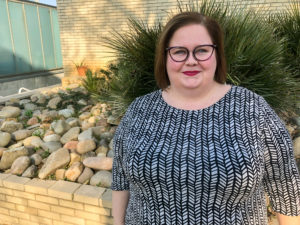Successful E-LAND kickoff meeting in Girona
By Mari Kristine Buckholm, Smart Innovation Norway 17. January 2019
This week, all 12 partners of the new and groundbreaking EU Horizon 2020 project, E-LAND, gathered in Girona, Spain, to get to know each other and refine the game plan for the three-year project.
“This was an excellent event to start the activities and make sure that the different people are actually able to deliver on time. It was definitely a success,” explains Heidi Tuiskula, scientific coordinator for the E-LAND project and international project manager at Smart innovation Norway.
On January 15th and 16th, the E-LAND consortium met up at Universitat de Girona in Girona, Spain, to kickstart the 6 million euro Horizon 2020 project together, with participants from Norway, Finland, Spain, Greece, Germany, Switzerland, and Romania.
“The kickoff meeting is very important, especially when we are talking about a project like this – with 12 diverse partners from multiple countries, with different backgrounds and cultural settings. It is valuable to gather and meet everyone, sit together and go through the plan that we made a year ago,” says Tuiskula.
“Good chance to deliver”
During the two-day meeting, the partners refined the work packages, communicated and agreed on which tasks to collaborate on and help each other with – and when.
The European Commission was represented by Mrs. Eleni Kontonasiou, who revealed that she was very pleased with the well-structured approach of E-LAND.

Heidi Tuiskula is International Project Manager at Smart Innovation Norway and Scientific Coordinator for E-LAND.
“The partners came here with several people from their organizations and have shown that they are devoted to the project. I am happy, and I feel that we have a very good chance to deliver on the challenging objectives and impact factors we have defined,” emphasizes Tuiskula, smiling.
Tools to battle climate challenges
E-LAND targets to develop and demonstrate tools for energy systems to overcome the technical, business and societal challenges associated with creation of low carbon, climate resilient energy supply in challenging ecosystem of isolated, remote or rural areas.
“The project is going to answer to the challenges we are now facing within climate and energy. E-LAND takes up the battle with greenhouse gases and faces today’s challenges with increased consumption of energy and an infrastructure which is getting older and older,” says Tuiskula. She adds:
“To create solutions for these things, and to increase the use of renewable energy, the E-LAND project will develop a specific set of tools, both related to the technology itself but also related to the business and community needs.”
Economically viable solutions
The project focuses especially on so-called energy islands, hence the name E-LAND, meaning isolated places in the grid where can be challenging to deliver electricity and energy.
- Read more: EU Horizon 2020 E-LAND project
“We want to ensure that the technological solutions we develop are actually used by the people living in these areas, that the locals are willing to use them. In addition, we want to make sure that the solutions we develop will be economically viable, so that it creates new businesses and new value to the European economy,” notes Tuiskula.
Demonstrating E-LAND: 3 + 2 pilots
To quantify and validate the overall effect of the E-LAND toolbox, the project will be implemented in three real-life pilots across Europe and two in India:
- The Industrial Harbor: Port of Borg, Norway
- The University Campus: UVTgv Campus, Romania
- The Technology Park: Walqa Technology Park, Spain
- The industrial Metropolitan: BYPL in Delhi and TATA Power in Mumbai, India
The different scenarios in each pilot will demonstrate the interoperability and scalability of the E-LAND toolbox.
“During the first year, the most important step is to structure the work. This basically means creation of boundaries and the platform on which the pilots will be developed. After the kickoff, the partners will go back to their respective countries and start working on different tasks, including defining use cases,” the scientific coordinator explains.
Social media
E-LAND updates

The E-LAND project aims to develop and demonstrate tools for energy systems to overcome the technical, business, and societal challenges associated with the creation of… (1 year ago)

E-LAND exploitation enhancement activities kickstarted for the final project year Multiple events were executed and many more are planned for the E-LAND project’s final year.… (1 year ago)

A central pillar of the E-LAND project's is risk management. The Norwegian consortium member, Institute for Energy Technology (IFE), implemented a risk management approach to… (2 years ago)

E-LAND H2020 is working with creating a toolbox that is designed to optimize and control multi-energy islands and isolated communities. The toolbox is structured in… (2 years ago)

Smart Innovation Norway together with the University of St. Gallen have developed a series of workshops that began in June 2021 and focused on the… (2 years ago)

About the pilot site: Port of Borg is situated in an industrial area on a small peninsula called Øra just outside Fredrikstad, Norway. Port work… (2 years ago)

Since the mid-1960s, the township of Auroville in Southern India has been striving for sustainable living and the realization of human unity in diversity. In… (2 years ago)